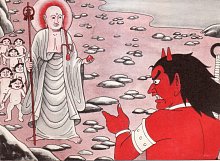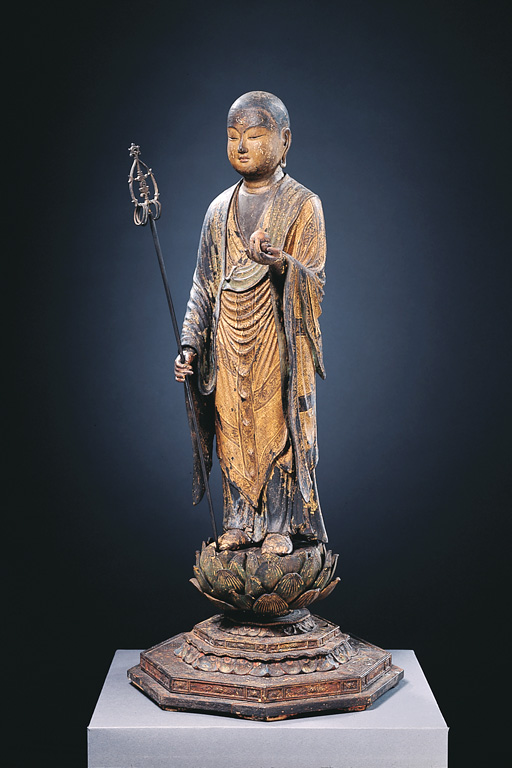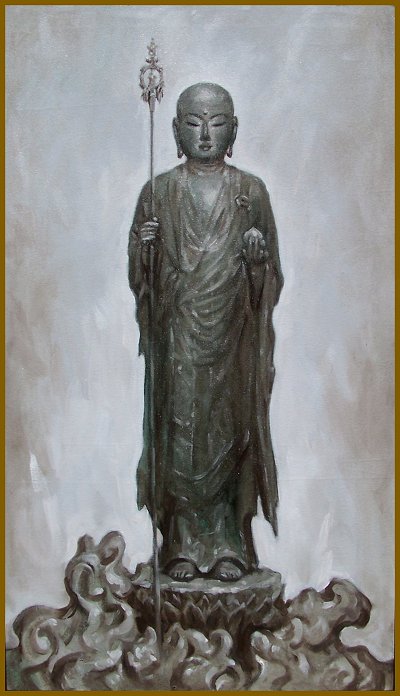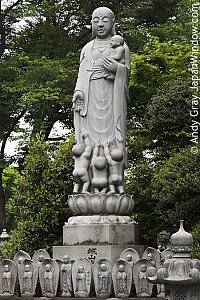It looks like you're using an Ad Blocker.
Please white-list or disable AboveTopSecret.com in your ad-blocking tool.
Thank you.
Some features of ATS will be disabled while you continue to use an ad-blocker.
share:
reply to post by Wandering Scribe
Merlin.
Gandalf.
Agasti.
Shiva Pashupathi.
Bertrand Russell.
Santa Claus.
All these and more: manifestations of the Wise Old Man.
Merlin.
Gandalf.
Agasti.
Shiva Pashupathi.
Bertrand Russell.
Santa Claus.
All these and more: manifestations of the Wise Old Man.
Santa Claus can be seen negatively, sorry. Anagram for Saturn and the bad guy of our bible. But the positive meaning, father christmas or the
spirit/angel/saint of giving happiness to others is what we rewrite. For all their codes, numbers, dates, occult things, all of it, is overwritten by
Love and what we determine it all means, and they're just little pigpen toddlers from charlie brown, sad really.
But the Old Man is not the devil.
But the Old Man is not the devil.
edit on 24-2-2014 by Unity_99 because: (no reason given)
Never Despise
Do you know the old man? He probably has many different names, but we can think of him as "the old man." He is bald, he is very kind and gentle. Perhaps you have seen him in a dream or a vision. He cares for children and people who are suffering miserably. He comes from far off, sometimes he might be seen from far off, barely glimpsed. He often has a staff of some kind. He may be an "archetype," he may be an actual being.
There is not really much more I can say. I think you either get it or you don't. So, do you know the old man? Have you met him, seen him, thought about him, seen him in a dream, seen him in real life, or otherwise become aware of him? Does this sound familiar? Do you grasp what I am saying? If so, you might at least be aware of the old man. He is very wise, very kind, and he helps children and others who are lost on the edges of things...people who don't fit into neat cateogories or are at the boundries. Perhaps he can be called a "saint," or perhaps something else.
Do you know the old man? Answer from your heart without thinking it through too much with your brain.
Let's pull out a few qualities noted in the original post:
- Old man
- Bald
-Staff
- Helps sufferers
- People on the edge of things / lost in "liminal spaces"
- Helps children.
Now... look at the pictures and consider the bolded parts below:
Boddhisattva Ksitigarbha:

"Ksitigarbha (Sanskrit: क्षितिगर्भ Kṣitigarbha) is a bodhisattva primarily revered in East Asian Buddhism, usually depicted as a Buddhist monk in the Orient. The name may be translated as "Earth Treasury", "Earth Store", "Earth Matrix", or "Earth Womb". Ksitigarbha is known for his vow to take responsibility for the instruction of all beings in the six worlds between the death of Gautama (Sakyamuni) Buddha and the rise of Maitreya Buddha, as well as his vow not to achieve Buddhahood until all hells are emptied. He is therefore often regarded as the bodhisattva of hell beings, as well as the guardian of children and patron deity of deceased children and aborted fetuses in Japanese culture. Usually depicted as a monk with a halo around his shaved head, he carries a staff to force open the gates of hell and a wish-fulfilling jewel to light up the darkness."
en.wikipedia.org...


Jizō Bosatsu (Japanese)
Ksitigarbha Bodhisattva (Sanskrit)
"One of the most beloved of all Japanese divinities, Jizō works to ease the suffering and shorten the sentence of those serving time in hell, to deliver the faithful into Amida’s western paradise (where inhabitants are no longer trapped in the six states of desire and karmic rebirth), and to answer the prayers of the living for health, success, children, and all manner of mundane petitions. In modern Japan, Jizō is a savior par excellence, a friend to all, never frightening even to children, and his/her many manifestations..
www.onmarkproductions.com...

edit on 2/24/2014 by FailedProphet because: (no reason given)
woodwytch
stirling
I must say I have not seen the old Man....
Ive lived through some pretty dramatic and perilous things but nope.....
Is this a native American thing or more all inclusive?
I'm thinking more all inclusive ... and hoping more people share their experiences to see if that's the case.
Woody )O(
I concur.
Danbones
Advantage
woodwytch
Advantage
You mean Napi?? Of course!
Well, I was reading this thread with some interest but didn't make the connection until I saw your post.
'Napi' (the old man) ... many years ago (20+) I was experiencing a lot of things both spiritual and paranormal and one day during my meditations I was told these words 'Pasha Napi' ... I have never been able to find-out exactly what it means ... other than I managed to find-out that Napi means 'the Old Man' (in terms of a godlike deity) ... do you (or anyone else reading this) have any idea what it means in it's entirety ?
I remember at the time feeling it was very important to me on a personal level as far as my development was concerned but I have still not found a specific translation.
Woody )O(edit on 09/09/2013 by woodwytch because: (no reason given)
Im Siksika.. Blackfeet.. and since I was born off rez I definitely dont speak the language fluently! My parents were both born on rez and I can call my mother and see if she knows what Pasha Napi is.. is anything.. later tonight. Napi means Old Man.. you can find a lot on him online these days. "Pasha" doesnt sound familiar to me in the least though! Im Piegan Blackfeet so maybe its a word in one of the other Blackfeet dialects.
here is what i found
NAPILiteral meaning: ‘old man’. The creator deity of the Blackfoot Indians, a tribe of Algonquin stock. It is suggested that Napi is a god of light rather than a solar deity. This would make his name ‘dawn-light-colour-man’.
In character the Old Man is a curious mixture of opposite attributes. At the creation of the world he is spoken of as the thoughtful and wise sky father; but, in other dealings with mankind, he displays an impishness, even in spite worthy of the trickster god Coyote. The Blackfeet, however, are sure about his immortality. They say that he has simply withdrawn into the mountains and has promised to return one day. Natos, ‘the sun’ appears to have taken the place of Napi as their supreme deity: his wife is Kokomikeis ‘the moon’. According to legend, all the children of Natos and Kokomikeis were eaten by pelicans, except Apisuahts, ‘the morning star’.
Having created the world and set it in order Napi made the first people out of clay. By a river he introduced himself to them, and was surprised at a question from the first women. She asked: ‘How is it? Will we always live, will there be no end to it?’ He replied: ‘I have never thought of that. We must decide. I will toss this chip of wood into the river. If it floats, when people die, in four days they will breathe again; death will last four days. But if it sinks, there will be no end to death.’ Napi threw the chip in the river and it floated. The first women picked up a stone and said: ‘If it floats we will always live, but if it sinks people must die.’ The stone immediately sank and Napi said: ‘You have chosen.’ Later the woman's baby died so that she realized what she had done.
Read more: www.answers.com...
I'm ojibwa/wendat metis ( irish, french )as are the others here in my local who have seen the old man from the sky
Pasha is an INDIAN from India word meaning head...perhaps it to exists in an indigenous language
just like manis tusu is in India what manitou is to an algonquin...
Thanks for that Danbones I really appreciate it ... from what you have said it definitely sounds like (in my case at least) that it was directly connected to my past-life memories.
Woody )O(
reply to post by Astyanax
hence the scoop and triangle scars all over my body lol
and the shared details between people here with totally different belief systems
hence the scoop and triangle scars all over my body lol
and the shared details between people here with totally different belief systems
reply to post by woodwytch
where did i just read that they have proven ancestor memories actually exist?
its around here somewhere
where did i just read that they have proven ancestor memories actually exist?
its around here somewhere
reply to post by Danbones
Actually, yes to both.
There is a lot of information packed into the few lines of my earlier post. Your symptoms are accounted for, as well as variations in the form of the archetype, which as I said earlier, are culturally modulated.
For the scoops and scars, which are undoubtedly the result of acts of self-harm carried out in a fugue state, I recommend consulting a psychiatrically qualified medical practitioner. If you don’t, your 'old man' may kill you one day. Or, worse still, kill somebody else.
hence the scoop and triangle scars all over my body lol
and the shared details between people here with totally different belief systems
Actually, yes to both.
There is a lot of information packed into the few lines of my earlier post. Your symptoms are accounted for, as well as variations in the form of the archetype, which as I said earlier, are culturally modulated.
For the scoops and scars, which are undoubtedly the result of acts of self-harm carried out in a fugue state, I recommend consulting a psychiatrically qualified medical practitioner. If you don’t, your 'old man' may kill you one day. Or, worse still, kill somebody else.
reply to post by Never Despise
Do you know the old man? Answer from your heart without thinking it through too much with your brain.
Is this an open ended question or do you have any theories on this? If you do have any answers at all I would love to hear what you have to say.
Astyanax
reply to post by Danbones
hence the scoop and triangle scars all over my body lol
and the shared details between people here with totally different belief systems
Actually, yes to both.
There is a lot of information packed into the few lines of my earlier post. Your symptoms are accounted for, as well as variations in the form of the archetype, which as I said earlier, are culturally modulated.
For the scoops and scars, which are undoubtedly the result of acts of self-harm carried out in a fugue state, I recommend consulting a psychiatrically qualified medical practitioner. If you don’t, your 'old man' may kill you one day. Or, worse still, kill somebody else.
lol
"who was there sarge you or me?"- Troy's driver Hitchcock on "The Rat Patrol"
actually i'm told i have triangles where i cN'T REACH
edit on 26-2-2014 by Danbones because: (no reason given)
the old man has appeared to me as someone who cares for souls the way a fine gardener would care for a plant that needs pruning, or tending to over
great periods of time. A soul that needs to be cut back in some areas, & allowed to flourish in others.
reply to post by Never Despise
You mean my dad?
First thing I thought of without "thinking with my brain" (??) -- he is bald and a nice guy.
Do you know the old man? Answer from your heart without thinking it through too much with your brain.
You mean my dad?
First thing I thought of without "thinking with my brain" (??) -- he is bald and a nice guy.
I've met the old man, though the details were very specific. In a dream I entered a large room in my house with a
table in the middle, and there he sat accompanied by two other people on each side. All three wore hooded cloaks, though
I couldn't see the faces of his companions as their hoods were drawn up, nor did they communicate with me in any way. His hood was down. He was balding slightly and had beautiful silver hair. His face resembled George Carlin very much. I asked what they were doing in my house and he replied that he was there for the "meeting." I asked "what meeting?" He replied "Our meeting." I
was puzzled at this and in a moment we were both standing in the middle of a large family gathering, invisible to the guests.
He told me that his name was John, that he was a doctor, and had been with me since birth. He also told me exactly when my
grandmother would pass away, down to the minute. (5:55 a.m.) He said I needed to know this because I would be the only one
with her at the time of death, and that I was much closer to her than I knew. (We were extremely close already.) This is the part
I haven't figured out yet.
Since my encounter with him my brother has also met him as well as my father. They were never spoken to, though. Only watched over and he was accompanied by the two silent companions at either side as well.
table in the middle, and there he sat accompanied by two other people on each side. All three wore hooded cloaks, though
I couldn't see the faces of his companions as their hoods were drawn up, nor did they communicate with me in any way. His hood was down. He was balding slightly and had beautiful silver hair. His face resembled George Carlin very much. I asked what they were doing in my house and he replied that he was there for the "meeting." I asked "what meeting?" He replied "Our meeting." I
was puzzled at this and in a moment we were both standing in the middle of a large family gathering, invisible to the guests.
He told me that his name was John, that he was a doctor, and had been with me since birth. He also told me exactly when my
grandmother would pass away, down to the minute. (5:55 a.m.) He said I needed to know this because I would be the only one
with her at the time of death, and that I was much closer to her than I knew. (We were extremely close already.) This is the part
I haven't figured out yet.
Since my encounter with him my brother has also met him as well as my father. They were never spoken to, though. Only watched over and he was accompanied by the two silent companions at either side as well.
reply to post by Danbones
You have parts of your body you can't reach? What disability do you suffer from?
actually i'm told i have triangles where i cN'T REACH
You have parts of your body you can't reach? What disability do you suffer from?
reply to post by Never Despise
>>> Sounds like that urban myth they generated about the tall gaunt man. I wondered if the black eyed children started that way. An old kindly man isn't going to generate much interest.
>>> Sounds like that urban myth they generated about the tall gaunt man. I wondered if the black eyed children started that way. An old kindly man isn't going to generate much interest.
Astyanax
reply to post by Danbones
actually i'm told i have triangles where i cN'T REACH
You have parts of your body you can't reach? What disability do you suffer from?
Having a back with that one spot that can't be reached to itch?
Wouldn't be a reason for back scratchers to be made otherwise.
reply to post by Chamberf=6
Yes, of course, that's probably it. He keeps getting scoop- and triangle-shaped scars in that place.
I think I've almost reached the end of my sojourn here on Above Top Secret...
Yes, of course, that's probably it. He keeps getting scoop- and triangle-shaped scars in that place.
I think I've almost reached the end of my sojourn here on Above Top Secret...
Astyanax
reply to post by Wandering Scribe
Merlin.
Gandalf.
Agasti.
Shiva Pashupathi.
Bertrand Russell.
Santa Claus.
All these and more: manifestations of the Wise Old Man.
Um, in that list Bertrand Russell was a real person.
edit on 3/2/2014 by Chamberf=6 because: (no reason given)
Looks like the OP has left the building…. Feb 24th was his/her's last visit, oh well. Shall we continue without him/her?
Okay, here's another candidate for The Old Man, Elijah The Prophet. (I am not referring to our resident Elijahs that post on ATS)
Here's some info:
Source: ejmmm2007.blogspot.com...
Could be? What do y'all think? Do you have any other candidates?
Okay, here's another candidate for The Old Man, Elijah The Prophet. (I am not referring to our resident Elijahs that post on ATS)
Here's some info:
Source: ejmmm2007.blogspot.com...
Called Eliyahu ha-Navi, “Elijah the Prophet,” in Hebrew, this prophet of ancient Israel (9th Century BCE) is one of the most celebrated heroes in Jewish lore. In his earthly mission he performed numerous miracles in his war against Israelite idolatry (I Kings, Chapters 17-21). He alone among all the prophets was carried from earth in a fiery chariot (II Kings 2).
Rabbinic literature elaborates on many of his feats and his unique status. He never died (B.B. 121b; Gen. R 31;5), instead, having ascended to heaven on a divine chariot, he became one of only a few select mortals who have been elevated to the status of an angel, and is henceforth known as the “Angel of the Covenant” (Mal. 3:1; Ber. 4b; Zohar Chadash Ruth 2:1). Unlike Enoch, however, Elijah retains his material body.
In subsequent Jewish tradition, Elijah fulfills three roles:
1) Angelus Interpres - revealing heavenly secrets to mortals in this world (see earlier entry)
2) Psychopomp – the spirit who guides souls in the World to Come
3) Herald of the Messiah and Malchut Shaddai, the Kingdom of Heaven (see earlier entry)
In countless Jewish stories Elijah appears wandering the earth on missions from God (sort of like the Blues Brothers), performing wonders, intervening on behalf of the poor, teaching, and giving divine insight to those who recognize him (B.B. 121b; B.M. 59b). He is present at every circumcision, and a chair is set aside for him, to welcome him (PdRE 29; SCh 585; SA 265:11; Zohar 13a). In the absence of the spirit of prophecy, it is a visitation of Elijah, along with the Bat Kol and the Ruach Elohim, which provides humanity of this eon with knowledge of the divine will (PdRE 1). The phenomenon of xenoglossia is sometimes understood to be an Elijah visitation.[1] He also appears to people in visions and dreams. Kabbalistic texts, such as the Zohar, cite him as the source for various mystical teachings (Zohar 1:2a).
Could be? What do y'all think? Do you have any other candidates?
edit on 3/2/2014 by seentoomuch because: (no reason given)
reply to post by Chamberf=6
A star for you, Captain Obvious. What of it?
Um, in that list Bertrand Russell was a real person.
A star for you, Captain Obvious. What of it?
new topics
-
Oh, Good Gosh. “Kremlin Warns Stay Away from Greenland.”
World War Three: 1 hours ago -
Archbisop Vigano Warns of Deep State and Deep Church
New World Order: 1 hours ago -
A Flash of Beauty: Bigfoot Revealed ( documentary )
Cryptozoology: 7 hours ago -
Fire insurance in LA withdrawn months ago
General Conspiracies: 9 hours ago
top topics
-
Fire insurance in LA withdrawn months ago
General Conspiracies: 9 hours ago, 8 flags -
A Flash of Beauty: Bigfoot Revealed ( documentary )
Cryptozoology: 7 hours ago, 6 flags -
Bizarre Labour Party Tic Toc Video Becomes Even More Embarrassing
Regional Politics: 17 hours ago, 4 flags -
Oh, Good Gosh. “Kremlin Warns Stay Away from Greenland.”
World War Three: 1 hours ago, 4 flags -
Archbisop Vigano Warns of Deep State and Deep Church
New World Order: 1 hours ago, 3 flags
active topics
-
Fire insurance in LA withdrawn months ago
General Conspiracies • 26 • : sapien1982 -
Trump says ownership of Greenland 'is an absolute necessity'
Other Current Events • 92 • : Lazy88 -
Oh, Good Gosh. “Kremlin Warns Stay Away from Greenland.”
World War Three • 7 • : DAVID64 -
The Truth about Migrant Crime in Britain.
Social Issues and Civil Unrest • 45 • : covent -
Judge rules president-elect Donald Trump must be sentenced in 'hush money' trial
US Political Madness • 87 • : tkwaz -
Los Angeles brush fires latest: 2 blazes threaten structures, prompt evacuations
Mainstream News • 299 • : StoutBroux -
A Flash of Beauty: Bigfoot Revealed ( documentary )
Cryptozoology • 4 • : CosmicFocus -
Archbisop Vigano Warns of Deep State and Deep Church
New World Order • 0 • : FlyersFan -
Planned Civil War In Britain May Be Triggered Soon
Social Issues and Civil Unrest • 33 • : sapien1982 -
Steering the Titantic from the Drydock.
Rant • 47 • : andy06shake
